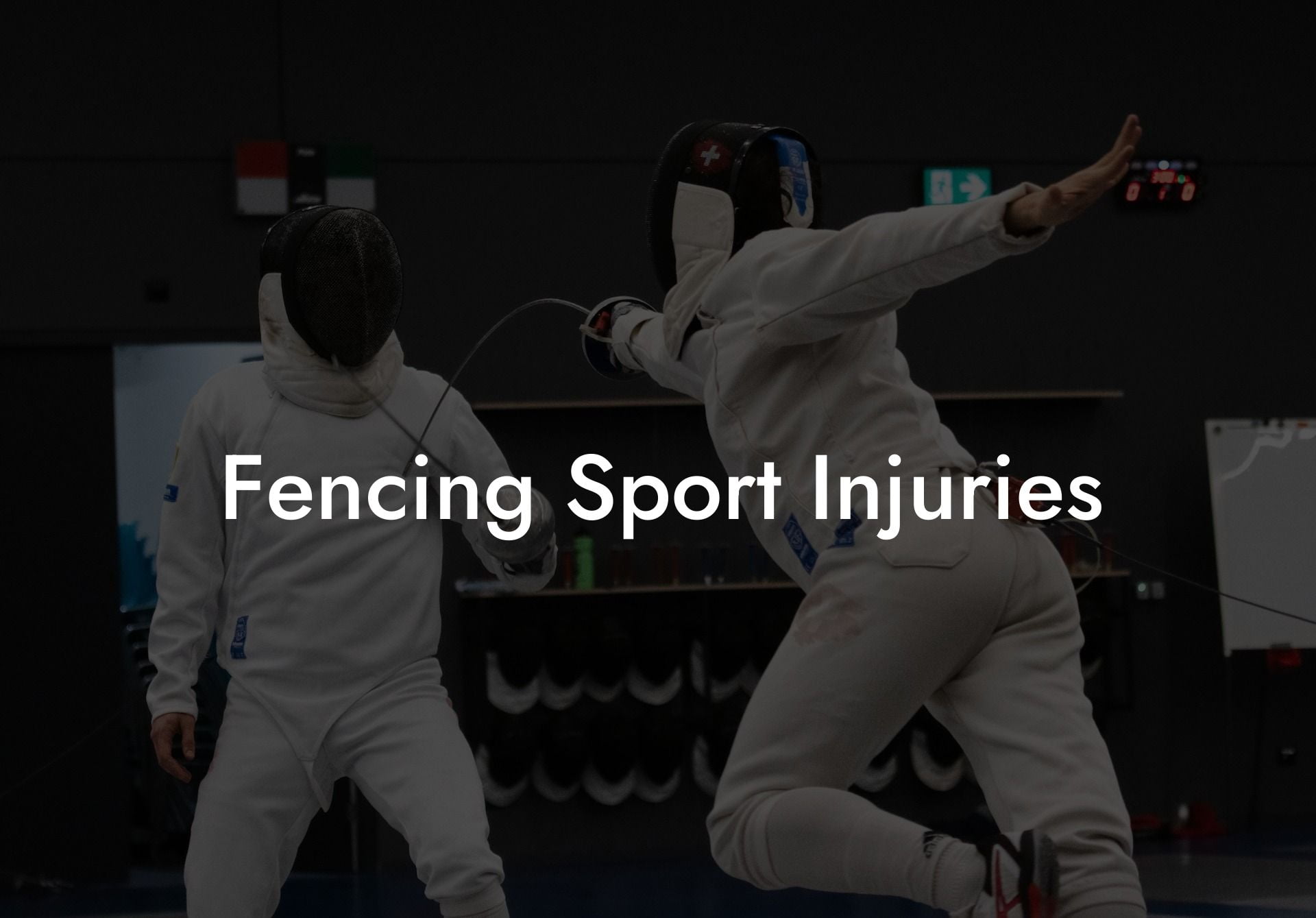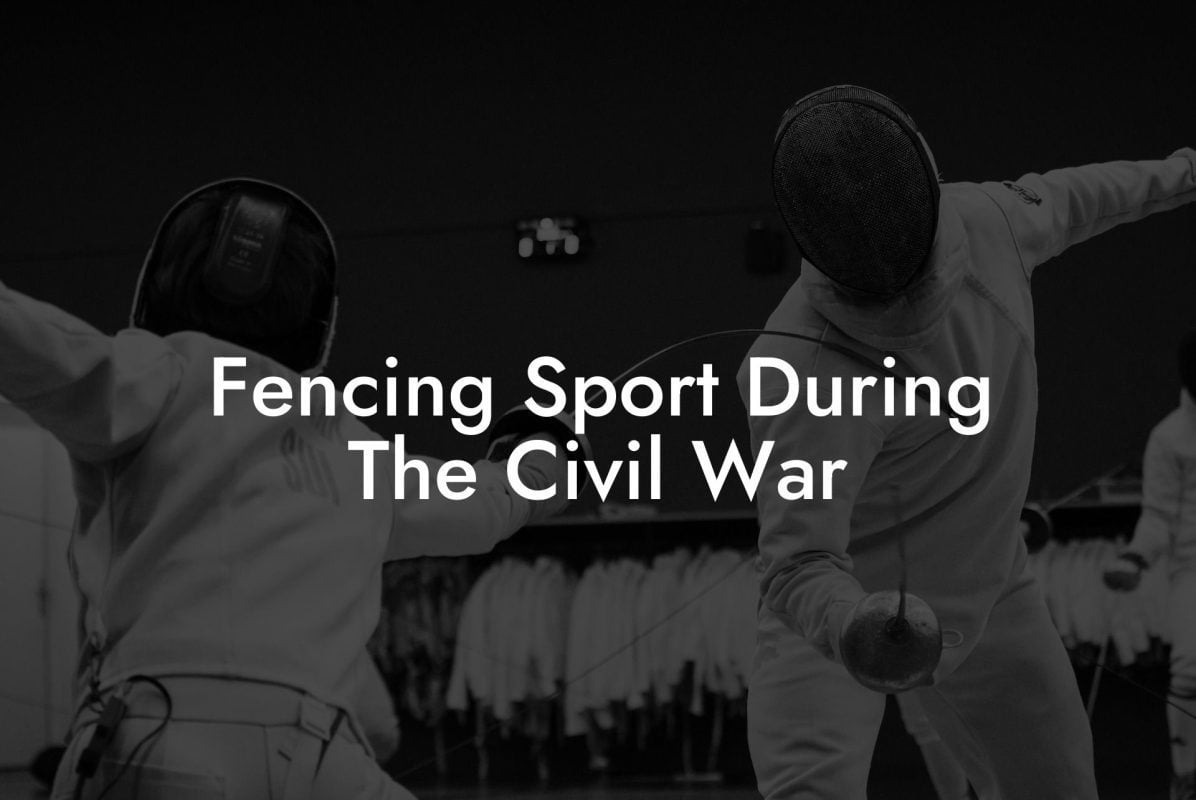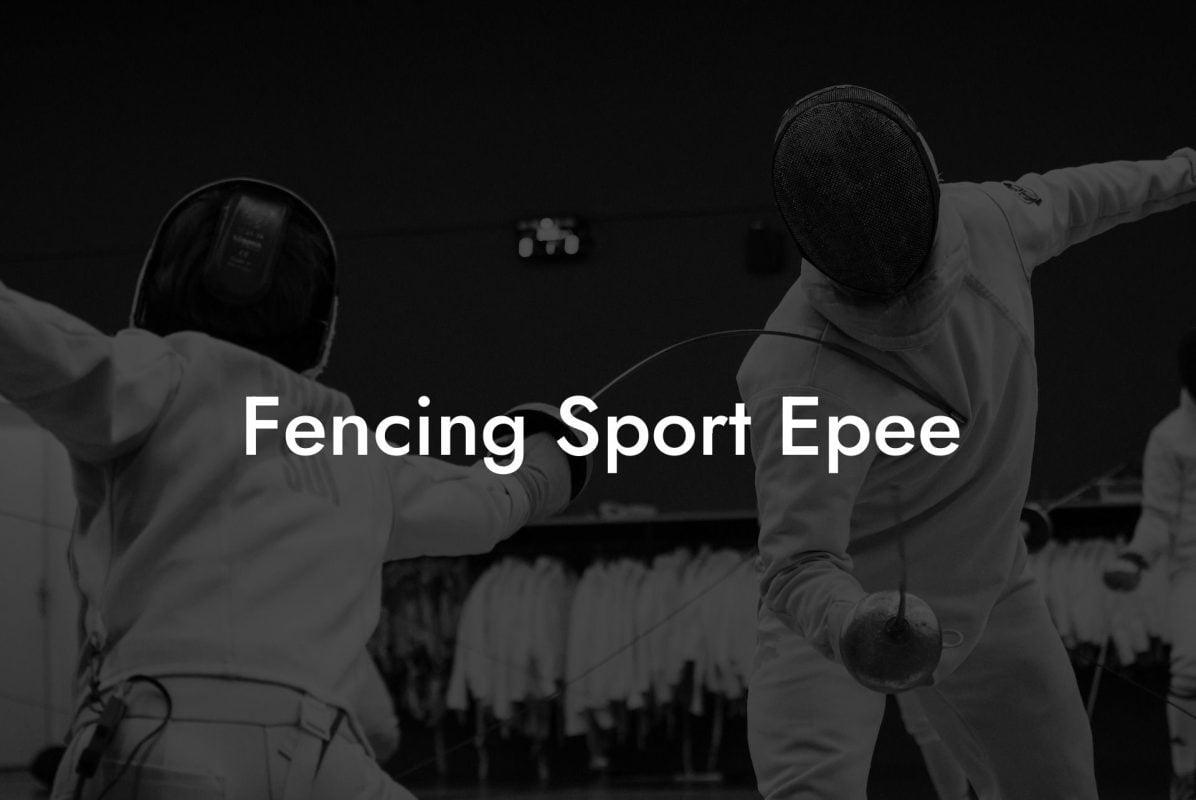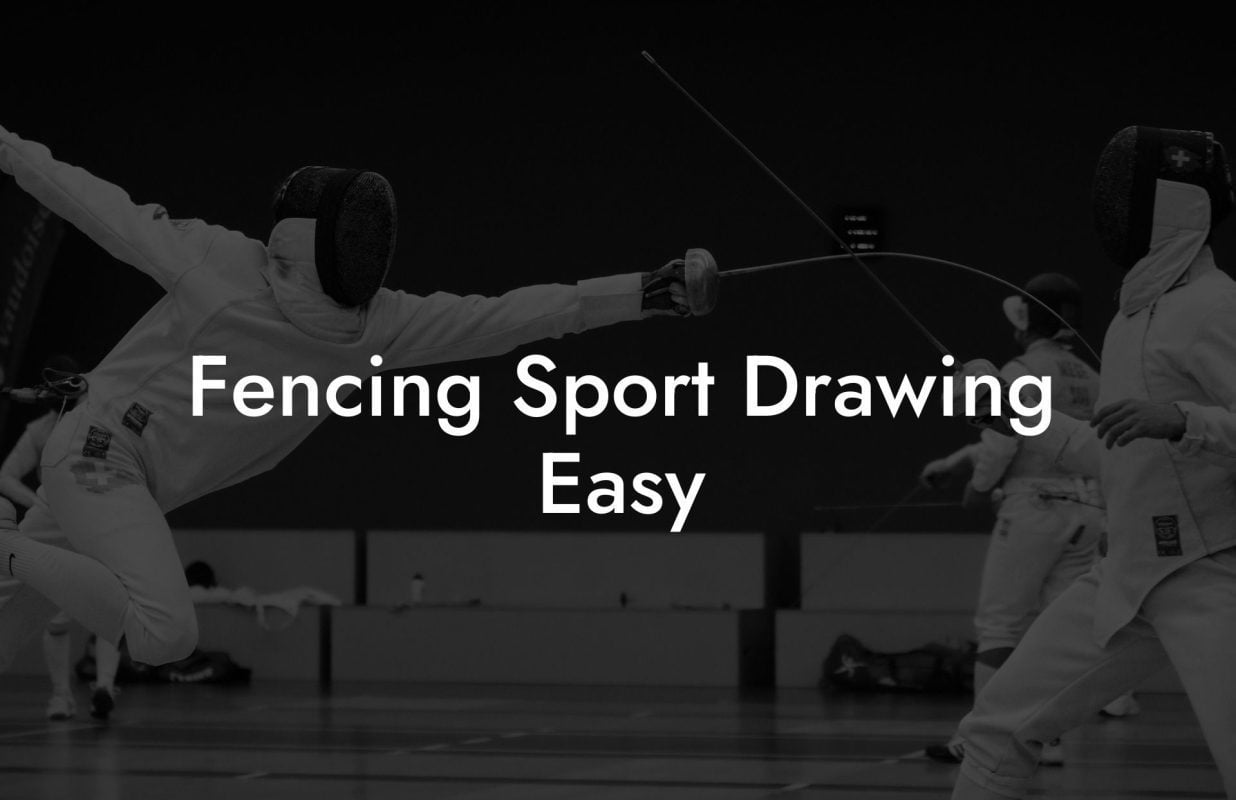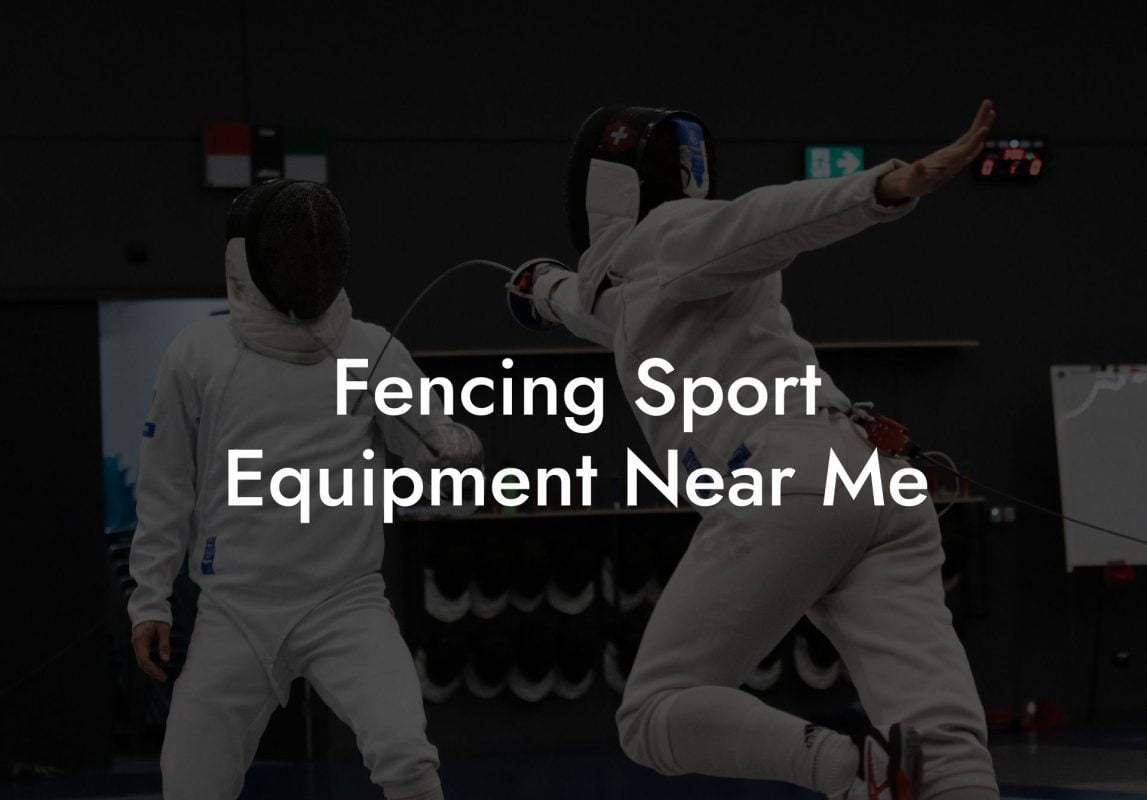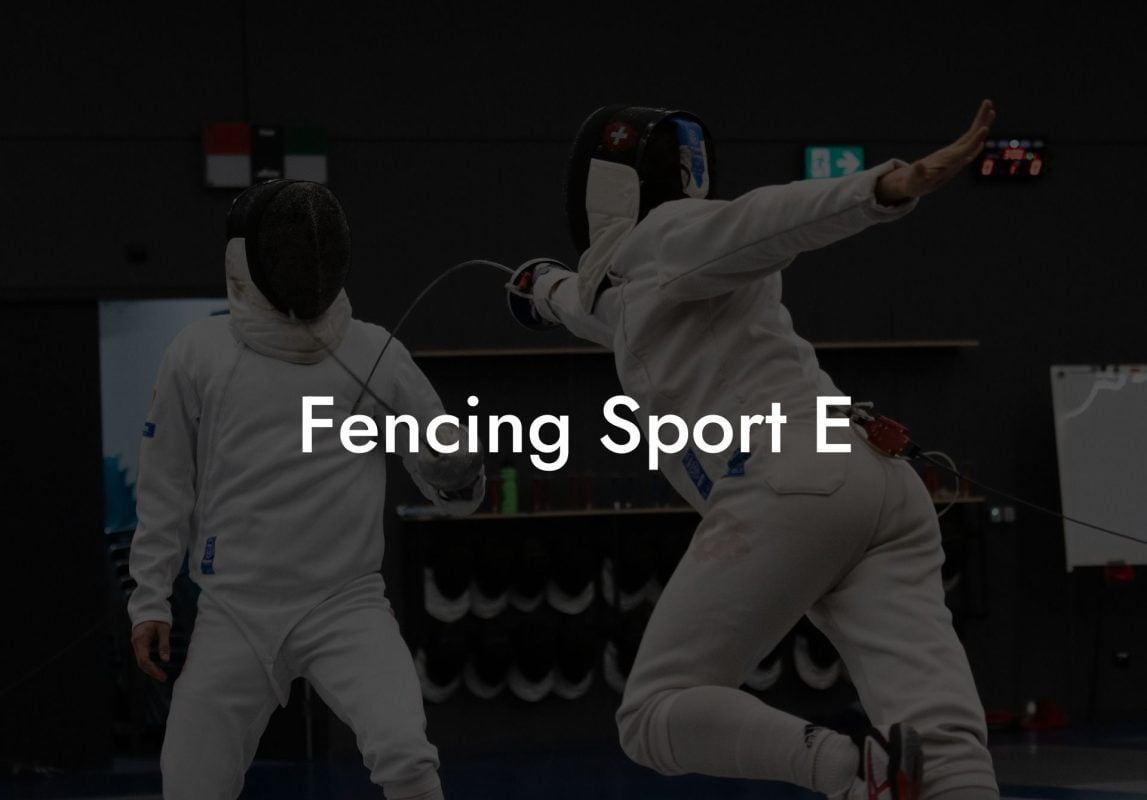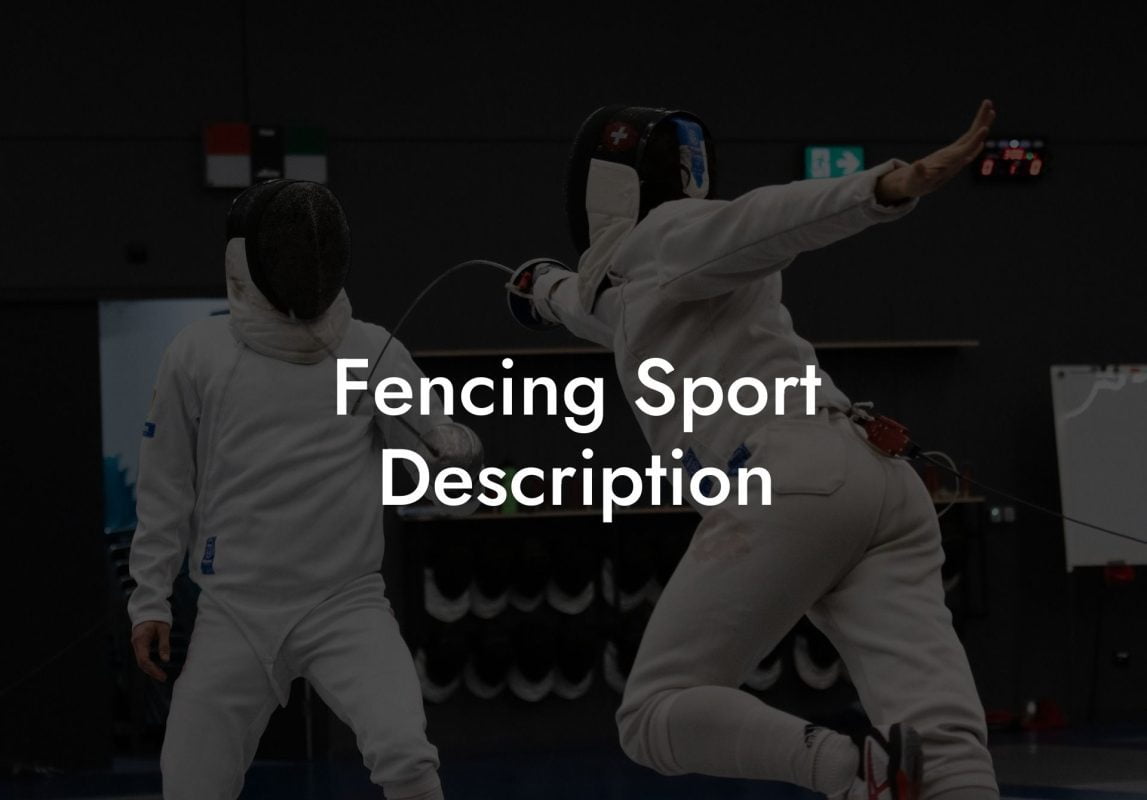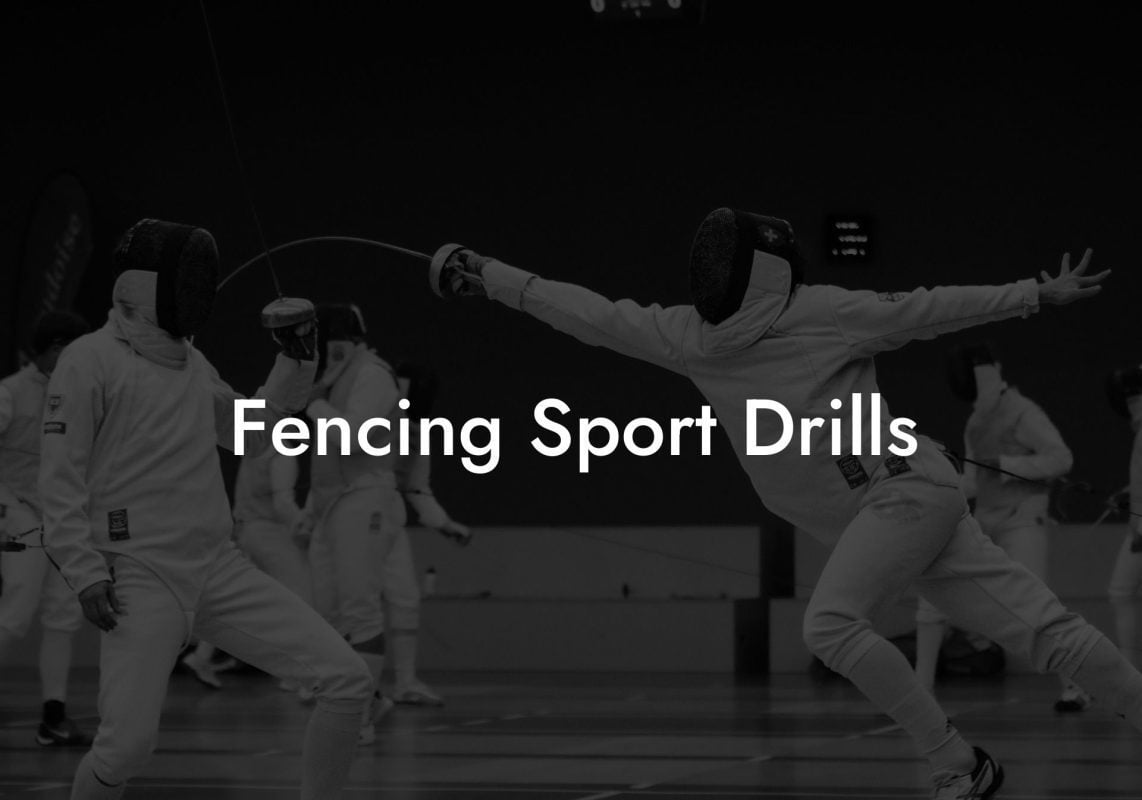Fencing is a captivating sport that combines speed, precision, and agility. Whether you're an experienced fencer or a newcomer to the sport, understanding potential injuries and how to prevent them is essential for maintaining your performance and enjoying the sport to its fullest. In this article, we will explore common fencing sport injuries, their causes, and strategies for prevention and treatment.
Common Fencing Injuries
Fencing is a low-impact sport, but it still poses a risk for injuries due to repetitive motion, sudden movements, and accidental contact with equipment. Some of the most common injuries that can occur in fencing include:
Tendinitis
Tendinitis is the inflammation of a tendon, usually around the wrist, elbow, or shoulder. In fencing, tendinitis is often a result of repetitive hand and arm movements, which can lead to pain and stiffness.
Sprained Ankle
Sprained ankles are a common injury in fencing due to rapid footwork and lunging movements. A sprain occurs when the foot is rolled or twisted, damaging the ligaments along the ankle joint.
Strains and Muscle Pulls
Strains and muscle pulls occur when muscles or tendons are overstretched or torn, often in the legs or back. These injuries can be caused by abrupt movements or improper warm-up techniques.
Bruises and Contusions
Accidental contact between fencing equipment (foils, epees, or sabers) and the body can lead to bruises and contusions. While bruises are generally harmless, they can still be painful and may require some time to heal.
Preventing Injuries in Fencing
There are several strategies you can implement to protect yourself against fencing injuries and ensure a safe practice environment. These steps include:
Proper Warm-up and Conditioning
- Always take the time to warm up before fencing to increase blood flow to your muscles and help prevent injury.
- Stretching exercises targeting your legs, arms, and back should be included in your warm-up routine.
- Develop a regular conditioning program that involves strength training, flexibility exercises, and cardiovascular workouts to keep your body in top shape for fencing.
Proper Technique and Posture
- Practice good posture and technique during fencing to minimize stress on your joints and muscles.
- Work with a coach to refine your movements and develop efficient footwork and weapon handling skills.
Protective Gear and Equipment
- Wear proper fencing gear, including a mask, chest guard, glove, and sturdy shoes with adequate ankle support.
- Inspect your equipment regularly to ensure it is in safe working condition and replace any damaged items promptly.
Fencing Sport Injuries Example:
Imagine you're a new fencer who's just started learning the sport. You've been practicing footwork and lunges but haven't been taking the time to warm up and stretch properly before your sessions. One day during practice, you feel a sharp pain in your calf as you lunge forward. You realize that you've strained your calf muscle, and now you need to take time off from fencing to recover.
By investing time in properly warming up, stretching, and conditioning, you could have significantly reduced the risk of sustaining this type of injury. In addition, regular coaching on proper fencing posture and technique would also contribute to preventing strains and other injuries.
Becoming a skilled fencer requires dedication to the craft, but that dedication should also extend to taking care of your body and preventing injuries. With the information and strategies in this article, you're now better equipped to safeguard yourself against common fencing injuries and enjoy the sport for years to come. Don't let injuries hold you back – share this article with your fellow fencers and explore other guides on Anchorage Fencing Club to learn even more about how to excel in fencing.

